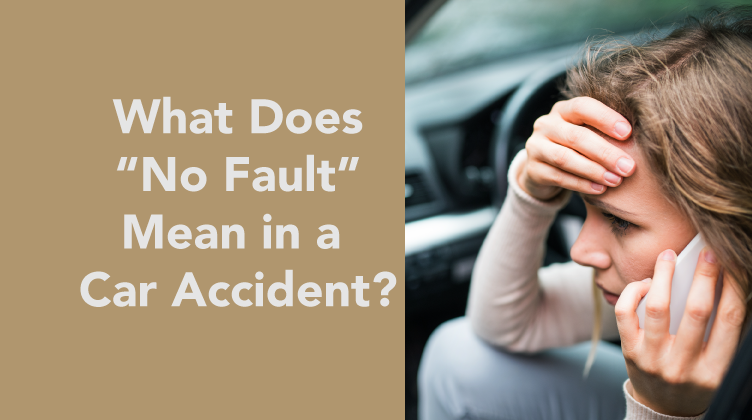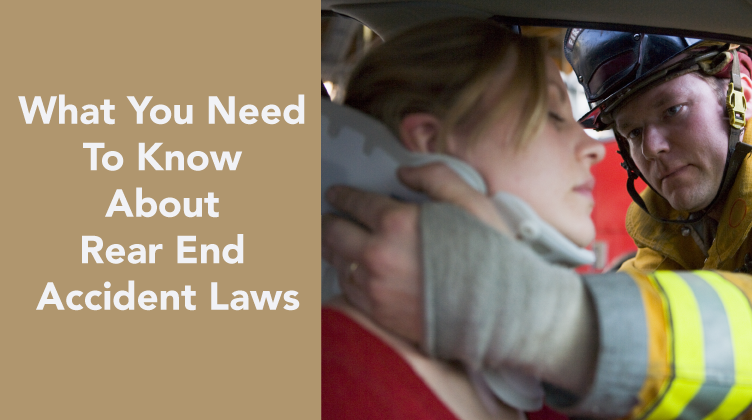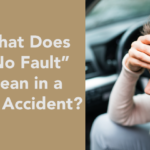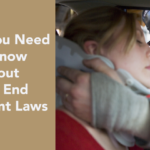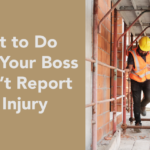Car accidents are incredibly traumatic events that can cause pain long after the incident has occured. Making sure you have an eye out for car accident symptoms, as well as the common side effects after a car accident, especially a few hours after a crash can be critical to both your health and ensuring you’re adequately compensated after a wreck.
This guide is designed to help you familiarize yourself with common car accident injuries and symptoms so you can ensure that your long term health and financial security is not destroyed by an accident. It’s common to experience delayed pain after a car accident, so be mindful of how you’re feeling as you recover.
Some of these issues can be embarrassing to talk about (for instance, experiencing constipation after a car accident), but any auto accident injuries and symptoms that persist ought to be a part of your settlement, and we’re here to make sure that a car accident doesn’t have side effects.
Headache
After an accident, victims of a car accident can experience what is called a post-traumatic headache. These headaches can be incredibly painful and erode your ability to function after a collision. Post-traumatic headaches are an entire classification of different types of headache, and we’ll outline a few below, so you can watch out for them after an accident. If you’re experiencing head pain after an accident that goes above and beyond anything here, see a doctor immediately.
Musculoskeletal headache – musculoskeletal headaches are often referred to as tension headaches, and they can appear quite similar to migraine headaches, except they do not induce nausea or visual impairment, but are very painful. Tension headaches are believed to stem from muscle contractions in the face or neck, due to emotions, tension, or stress. If you’re experiencing a lot of these after an accident, it may be the cause. Even something as benign as ear pain following car accident could be a potential catalyst for headaches.
Nerve dysfunction headache – this might not be a headache, but rather pressure on the occipital nerves in the back of your head, which can be directly related to an accident. More on this in neck and shoulder pain, but regardless, this can develop into a serious issue.
Migraine headaches – The research surrounding the most commonly known type of headache, the migraine, is ongoing, but if you’re experiencing them or some of the common symptoms (for instance dizziness weeks after car accident), the accident may be the cause. Migraines are believed to be caused by changes in the brainstem and a major pain pathway called the trigeminal nerve. While not common, trauma may be an inciting factor.
Neck and shoulder pain
A recurring theme throughout this post will be keeping an eye out for possible side effects and symptoms after experiencing whiplash.
So, what is whiplash?
Basically, when a car is slammed into or stopped abruptly, it generates a huge amount of force that is often transferred to passengers. If you car was hit from the side, side impact neck injuries are common. If you’re wearing a seatbelt, this device will keep these forces mitigated, but you are not entirely protected from them. The jerking motion that occurs (whiplash) can result in injuries to spinal discs, facet joints, and other parts of your neck, shoulders, and back. Your body is not built to withstand forces of this magnitude, and serious injuries can result, and many of them are not apparent until after the accident. Back injuries from car accidents symptoms’ are often incredibly painful, and you should see a doctor immediately if you’re in serious pain of any kind.
Most injuries become apparent within 12 hours after an accident. If you’re experiencing any of the following symptoms in your neck and shoulder areas, consult a doctor immediately:
- Dull aches
- Sharp pain
- Numbness
- Burning sensations
- Restricted range of motion
Any one of these symptoms might signify a serious injury. It’s also important to be mindful of what might seem like a minor issue, but could be part of a more serious problem. Even something as benign as a sore throat and cough after car accident could be a sign of something worse.
Abdominal pain
In a car accident, begin thrown against the seat belt or potentially hitting a steering wheel with your abdomen can cause enormous amounts of damage to the internal structures in that area. It is not uncommon after an accident to experience bruising or soreness in your abdomen, but if kidney pain after car accident, pelvic pain after car accident, or any pain persists, seeing a doctor should be a top priority, as you might be experiencing internal bleeding.
If you’re experiencing any light-headedness, dizziness, fainting, blacking out after a car accident, or trouble breathing after car accident, immediately see a doctor. Internal bleeds can happen around your aorta, liver, and basically any of the major organs in your body, and the consequence of these can be long-reaching and potentially fatal.
Once these issues have been sorted, this sorts of damages can be claimed in a lawsuit or on an insurance claim, and you should not worry about potential costs. It is overwhelmingly likely that you will see some sort of compensation for injuries of this magnitude.
Back pain
Back injuries related to whiplash are common and can be quite debilitating. Common injuries include damage to discs, lumbar sprains, spinal stenosis, and herniated discs.
Disc damage – pain caused by damaged discs (pain in the squishy bits of ligament tissue connecting the vertebrae in your spinal column is known as discogenic pain, and can result in difficulty moving or stabilizing yourself when you’re standing up or sitting down. The pain can be very intense.
Lumbar sprains – Pain resulting from tearing or stretching of the ligaments in your back, often related to whiplash.
Spinal stenosis – Spinal stenosis is a particularly bad condition which refers to the bone channel in your spine that houses your spinal cord. In instance of heavy trauma, the channel holding this bundle of nerves narrows, putting pressure on the spinal cord.
Herniated disc – Herniation is when the inner filling of the discs in your back ruptures through the outer layer. Often it is not initially painful, but when this material comes into contact with the nerves of your spine it can be unbearable.
Numbness and or bruising
Nerve damage is nothing to joke about. It can seriously affect your life, making you susceptible for further injuries, and also drastically reduce quality of life. After a car accident, keeping an eye out for any of these symptoms is important to protect yourself:
- Full or partial paralysis of limbs, including fingers and toes
- Shooting pain that radiates down limbs
- Muscle weakness or difficulty moving
- Numbness, prickling, or tingling anywhere in the body
- Sensitivity to heat or cold
- Swelling of any kind, including feet swelling after car accident
If you’re experiencing any of these symptoms after an accident, see a doctor immediately. Time can be of the essence when treating nerve damage. If you find yourself uncontrollably shaking after a car accident, see a doctor!
As mentioned before, bruising can often be a sign of internal bleeding, which can connect with and intersect with nerve damage. Get yourself to a doctor and get checked out.
Emotional distress
So far, we have only been talking about the physical components of injuries. Often after an accident, many different stressful emotional states can occur, one of the most serious being post-traumatic stress disorder.
Post-traumatic stress disorder, also known as PTSD, is a very common disorder that results from seeing, experiencing, or learning about an event that involves actual or threatened death, often regardless of the severity of the physical effects on the body. A lot of people want to say it’s shock after a car accident that’s giving you these symptoms, but it might be PTSD.
After a stressful event, many people may experience nightmares or other stress inducing events, but generally resolve them after a relatively short period of time. There are many symptoms of PTSD, but most relate to intrusive memories, avoidance, negative changes to thinking and mood, and shifts in physical and emotional reactions to events in your life. These symptoms persist over a long period of time and require treatment.
You should absolutely see a doctor if you are experiencing abnormal stress and mental symptoms after an auto accident–treatment is available and effective.
When suing for damages after an accident, there are many conditions that qualify for compensation other than PTSD as well, so it’s important to name and document any emotional distress and potential brain injury as these conditions have real and adverse effects on your life and deserve compensation.
Moving forward
Knowing what to expect after a car accident can leave you reeling. Nobody wants to be involved in a serious accident, but they often occur, and can force radical shifts in your quality of life and ability to achieve your goals and fully live your life. When you are involved in an accident, you are entitled to compensation from liable parties or your insurance company, and you want to make sure that you are getting a fair shake. Hiring a good injury attorney can be one of the best ways forward in scenarios like this. Don’t minimize your experience! Even something minor, like mild symptoms after getting rear ended is noteworthy and should receive compensation.
If you’re worried about someone who might have experienced trauma from a car accident, let them know that you’re worried about them, and let them know that there are many options for dealing with pain after an accident, as well as ways to ensure that they are compensated to the fullest extent financially.
So, are you having pain after a car accident? We offer a comprehensive suite of legal services designed to help you deal with the fallout of an auto accident, as well as providing free resources like this one so you can better understand your situation and what to do in the event of a disaster. If you have questions or would like to know more, please get in touch with us.

